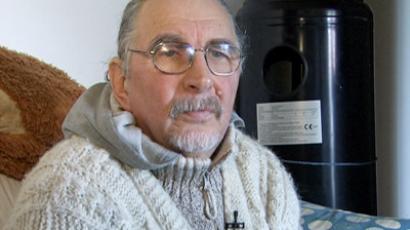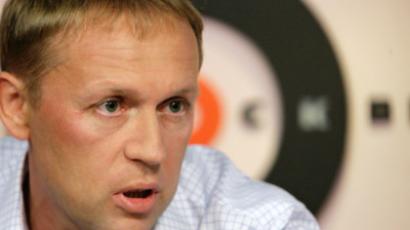British blackout? UK media silent on Lugovoy polygraph
British media look to be in no hurry to cover Russian MP Andrey Lugovoy’s British polygraph test, which showed he did not kill former security officer Aleksandr Litvinenko. It is odd that the media stay quiet, journalist Kenneth McTaggart told RT.
The test was conducted by British experts on Wednesday, with the results immediately picked up by Russian media. In the UK, however, the news saw far less enthusiasm – with just a handful of small-scale titles covering it. British journalist Kenneth McTaggart told RT that he himself interviewed Lugovoy after the test, and submitted it to The Sunday Times. Curiously enough the interview did not make it to the pages of the newspaper, which did not provide a reason for the omission.RT: Was there any explanation for why your article wasn't published? What was in your interview?Kenneth McTaggart: The newspaper was very interested in the article, and they accepted [it] – and I haven't heard anything since, and it did not appear in today's newspaper. I have heard some rumors that it was the subject of a DA suppression notice [an official request to news editors not to publish or broadcast items on specified subjects for national security reasons – ed.] on national security grounds, but I am not really certain on that matter.I still await an explanation. It could be innocent: it could be that there was not enough space in the newspaper – that sometimes happens to my articles – but I don't have a reason why it wasn't published.RT: The whole story on Lugovoy's lie detector test hasn't received much coverage in the UK. Why do you think that is?KM: It is quite strange; it was picked up very quickly by some of the very small-scale British press through the week. They were picking it up from the Russian media. It is a matter of public interest in the UK, and in fact the subject of polygraph or lie detection is currently a big story in one of the Sunday papers today in regards to a notorious criminal case. And it is very odd that this technique, which is very new and shows some very interesting results, has not been a subject of public attention. I would have expected it to have been.Often it is the case that an article that is covered slightly in the weekly newspapers is picked up and covered in depth in the Sunday newspapers – and it is not in any of them today.RT: Polygraph tests aren't considered standalone evidence in the British judicial system. Can we expect this latest revelation to affect the long-running case?KM: Polygraphers have given demonstrations of their techniques to the Home Office in the UK and to the police authorities, and certainly the authorities have interest in a technique that is not legally recognized in many other countries including the US, Russia and other European countries.But they are soundly used to inform cases and to satisfy families of victims, people who experienced injustices and so on. It is used to give them some reassurance of the truth or untruth of various matters.They do have a role to play, there is a lot scientific evidence around there.RT: Some skeptics believe that as a former security services agent, Lugovoy might have actually been trained to cheat lie detectors. Is that possible?KM: It is possible perhaps, but these are very deep-seated physiological reactions and most polygraphers will tell you that it is not really possible to cheat them completely.Interestingly, when I spoke to Lugovoy about his reactions to the test, his was very typical of the average person receiving the test. He walks in confidence, feels very confident in his innocence but when he is confronted by the equipment and by the expert he suddenly feels nervous, as do most people taking this test. Their confidence is immediately deflated. His reaction was not that of a trained deceiver, it was a reaction typical of innocent people who have taken this test before.














